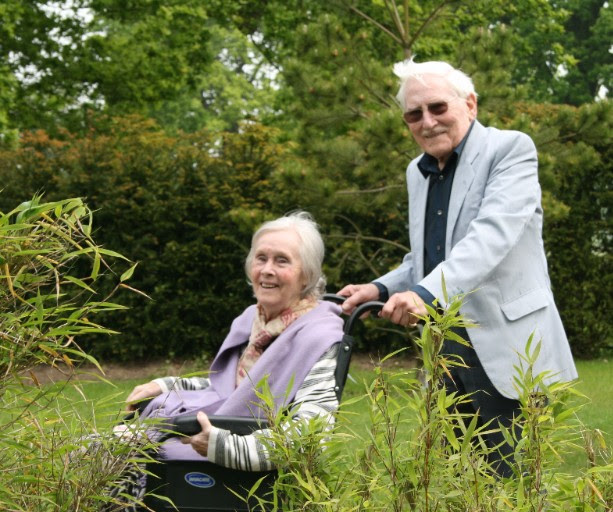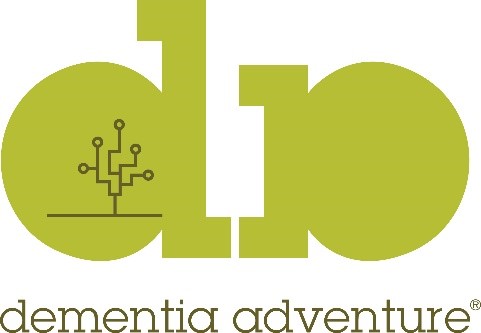Funding to help unpaid carer think differently about dementia
“This grant is really good news for people supporting someone living with dementia in Essex."
Essex-based Dementia Adventure is delighted to have been awarded £3,000 from Fowler Smith & Jones to hold two ‘Thinking Differently about Dementia’ seminars for family carers of people living with dementia in the county.
The seminars will look at the following key issues:
- What dementia is
- What it means to the individual
- How people can live well with dementia
- How dementia can affect communication and interaction
The organisation will explore three simple and effective research based models of how to effectively interact and communicate with people living with dementia and review some of the difficulties that may be experienced. Additionally, participants will be shown how Dementia Adventure activities, holidays and short breaks have created opportunities for various physical and outdoor activity and how positive risk taking can benefit the individual. There will also be a Q & A session as well as exploring what support is available locally, together with resources for further learning and development.
Debbie Anderson, Dementia Adventure Project Leader said: “This grant is really good news for people supporting someone living with dementia in Essex. It will allow us to run two training events for unpaid carers giving them the tools and information to support their loved one with dementia as well increasing confidence to enjoy nature-based activities. Keeping active, stimulating the brain and contact with nature can really help to improve health and well-being and can even delay and reduce symptoms of dementia.
Dementia affects the whole family; the strain of caring on family relationships is huge. A lack of knowledge and understanding of dementia can lead to difficulties for the carer and their relationship with the person they love and are caring for. The abilities and behaviour of the person may change as their dementia progresses so being able to understand this will help carers to cope, by reducing their own stress and anxiety, and improve their ability to communicate with the person they are looking after.”
In Essex alone there are:
- More than 20,000 people living with dementia (Essex Dementia Strategy, 2012)
- Dementia increases with age and there is a rapidly aging population in Essex - the number of people over 85 years in Essex will more than double, from about 31,000 to 77,000 by 2031. (Essex Joint Strategic Needs Assessment, 2013)
- Dementia can affect people of any age – in fact it is estimated that there are 42,325 people in the UK who have been diagnosed with young onset dementia (under 65 years). They are often more active, and wish to remain so for as long as they can. (Dementia 2014 report, Alzheimer’s Society)
- It is estimated that two thirds of people with dementia are living at home and are likely to be looked after by an unpaid family carer yet families are often not given the information and skills they need to support them in their caring role. (Prime Minister’s challenge on dementia 2020, Department of Health, 2015)
The seminars are aimed at unpaid family carers of any age who support someone with dementia and professionals working with people with dementia. To register your interest in attending a training session, please contact Debbie Anderson at Dementia Adventure on 01245 237548 or deborah@dementiaadventure.co.uk
-ENDS-
For further information, please contact Joanne Lambert Smith at Dementia Adventure, on 01245 237548 or jo@dementiaadventure.co.uk
NOTES TO EDITORS
About Dementia Adventure
- Dementia Adventure is an award winning social enterprise and registered charity committed to helping people living with dementia get outdoors, connect with nature, themselves and their community, and retain a sense of adventure in their lives. www.dementiaadventure.co.uk
- Through training, research, and consultancy services it enables care providers and organisations to take advantage of the natural resources on their doorstep to enhance the lives of people living with dementia and the people who care for them.
- The organisation is currently expanding the benefits of its nature-based, positive-risk taking approach with local and national partners through its social licence product Dementia Adventure in a Box in order to increase the choices of outdoor activities available for people with dementia. Its legacy will be to create an ever-growing network of dedicated, experienced and knowledgeable individuals and organisations, all receiving in-depth support from the Dementia Adventure team.
- Dementia Adventure also designs, plans and delivers bespoke, small-group holidays and short-breaks for people living with dementia and their carers to enjoy together. It supports people with trained staff and volunteers, and offers this as an alternative to traditional respite.
About the need for these seminars
The Alzheimer’s Society estimates there are 850,000 people in the UK living with some form of dementia, rising to 38% of the total UK population by 2021 and doubling by 2030.
In Essex alone there are;
- More than 20,000 people living with dementia (Essex Dementia Strategy, 2012)
- Dementia increases with age and there is a rapidly aging population in Essex - the number of people over 85 years in Essex will more than double, from about 31,000 to 77,000 by 2031. (Essex Joint Strategic Needs Assessment, 2013)
- But dementia can affect people of any age (commonly termed Early Onset Dementia)
- It is estimated that two thirds of people with dementia are living at home and are likely to be looked after by an unpaid family carer yet families are often not given the information and skills they need to support them in their caring role. (Prime Minister’s challenge on dementia 2020, Department of Health, 2015)
Dementia affects the whole family; the strain of caring on family relationships is huge. A lack of knowledge and understanding of dementia can lead to difficulties for the carer and their relationship with the person they love and are caring for. The abilities and behaviour of the person will change as their dementia progresses. Understanding this behaviour can help carers cope and improve their ability to communicate with the person they are looking after. Dementia accounts for more years of disability than any other condition, including stroke, cardiovascular disease and cancer.
We know that getting out in the fresh air and having a sense of adventure in our lives makes us feel better. Yet many people living with dementia can face barriers to accessing these benefits. Earlier this year, Dementia Adventure’s latest piece of research was published by Natural England – Is It Nice Outside? –which details the results of consultation with people living with dementia and family carers about their engagement with the natural environment. The report reveals that engaging in outdoor activities that have a purpose and those that involve being with other people provides the greatest motivation for people living with dementia: Only 20% of the people living with dementia considered that their condition was a barrier to using outdoor spaces, whereas 83% of carers believed that dementia limited the person’s ability.
More about the training
The innovative and informative sessions will provide practical and achievable guidance on improving the quality of life for both the person living with dementia and the carer themselves, including;
- The neuroscience of dementia so that they understand why a person behaves as they do – why memories collapse, the retention of emotional intelligence
- How to communicate well with a person with dementia
- Environmental considerations – preventing anxiety and distress, preventing falls
- The sensory challenges of people living with dementia – triggering emotions and memories
- The benefits of connecting with nature and providing practical solutions to give them the confidence to get outdoors, enjoy a range of activities and live full and active lives with the person they care for.
This increased knowledge and understanding will result in;
- Improved ability to communicate with a person living with dementia
- Better understanding of dementia and therefore improved ability to care
- Reduced stress and anxiety of the person living with dementia
- Improved ability to continue caring
- Increased confidence to enjoy nature based activities together with a person living with dementia
- Improved overall health and wellbeing
- Related cost savings e.g. each Carer supported to continue caring could save the state £18,473 annually (Carers Trust/University of Leeds)
Dementia Adventure will also work with the carer to develop an action plan so that the benefits are longer lasting. For example, making changes to their physical environment to support the person they care for and identifying nature-based activities they feel confident to participate in.
About Fowler Smith & Jones Trust
Chelmsford-based charitable trust that provides grants for the benefit of Essex residents. For further information, visit http://www.fsjtrust.org.uk/
Press release distributed by Pressat on behalf of Dementia Adventure , on Wednesday 6 July, 2016. For more information subscribe and follow https://pressat.co.uk/
Dementia Adventure Dementia Essex Dementia Support Organisations Family Carers Local Authorities Training Charities & non-profits Government Health Medical & Pharmaceutical Public Sector & Legal
You just read:
Funding to help unpaid carer think differently about dementia
News from this source:





